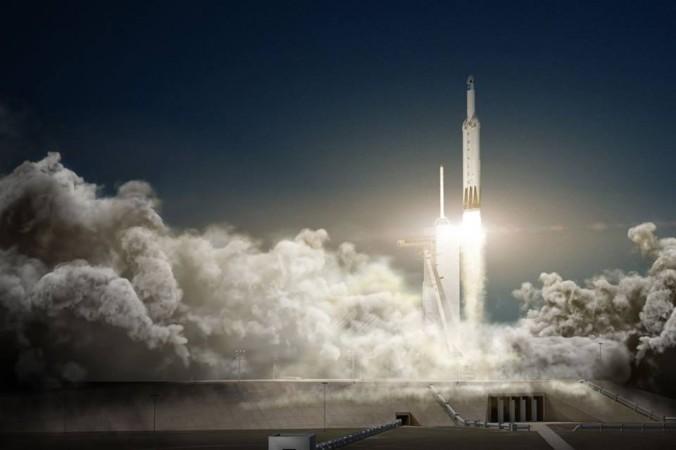
SpaceX CEO Elon Musk has made an announcement about the first-ever launch of the Falcon Heavy rocket, which is likely to take place in November, though no dates have been specified yet.
ALSO READ: Conspiracy theorist discovers mysterious underwater pyramids near Florida using Google Earth
A data page for those interested in attending this inaugural launch and flight has been put up by NASA's Kennedy Space Centre.
"The most powerful rocket this generation has ever seen, SpaceX's new Falcon Heavy rocket, launches no earlier than this November. Kennedy Space Centre's historic launch pad 39A has not supported this much thrust since the last Saturn V rocket nearly 45 years ago," said the statement on the page.
Modification of the launch pad had taken place recently to allow Falcon 9 and Falcon Heavy launches.
The Falcon 9 launch took place on October 11, 2017, which made SpaceX secure its position as the world's biggest rocket-launch company.
SpaceX's YouTube channel had uploaded an animated video in January which shows the entire launch process along with the initial stages of the recovery of the rockets.
ALSO READ: Space Debris: These are the countries on Earth with the most space junk
Another video was posted on SpaceX's Instagram account in September, portraying Falcon Heavy being tested for launch.
"Currently, this launch is targeted for no earlier than (NET) November 2017, with a date and time TBD," NASA's Kennedy Space Center said.
Visitors can view the launch from the complex or purchase an extra ticket to witness it and get a closer view of the launch pad. Viewing time has to be approved by USAF (US Air Force) and NASA.
ALSO READ: NASA's MAVEN finds Mars has a mysterious magnetic tail
SpaceX is aiming to land all three first stages from the rocket — two at the Cape Canaveral Air Force Station and one on a drone ship named "Of Course I Still Love You" present in the Atlantic Ocean.
The information regarding the launch of Falcon Heavy rocket will be updated on this page.
Meanwhile, SpaceX is all prepared to launch a communications satellite — Koreasat 5A — using a regular SpaceX Falcon 9 rocket on October 30, 2017, spaceflightnow.com has revealed.

















